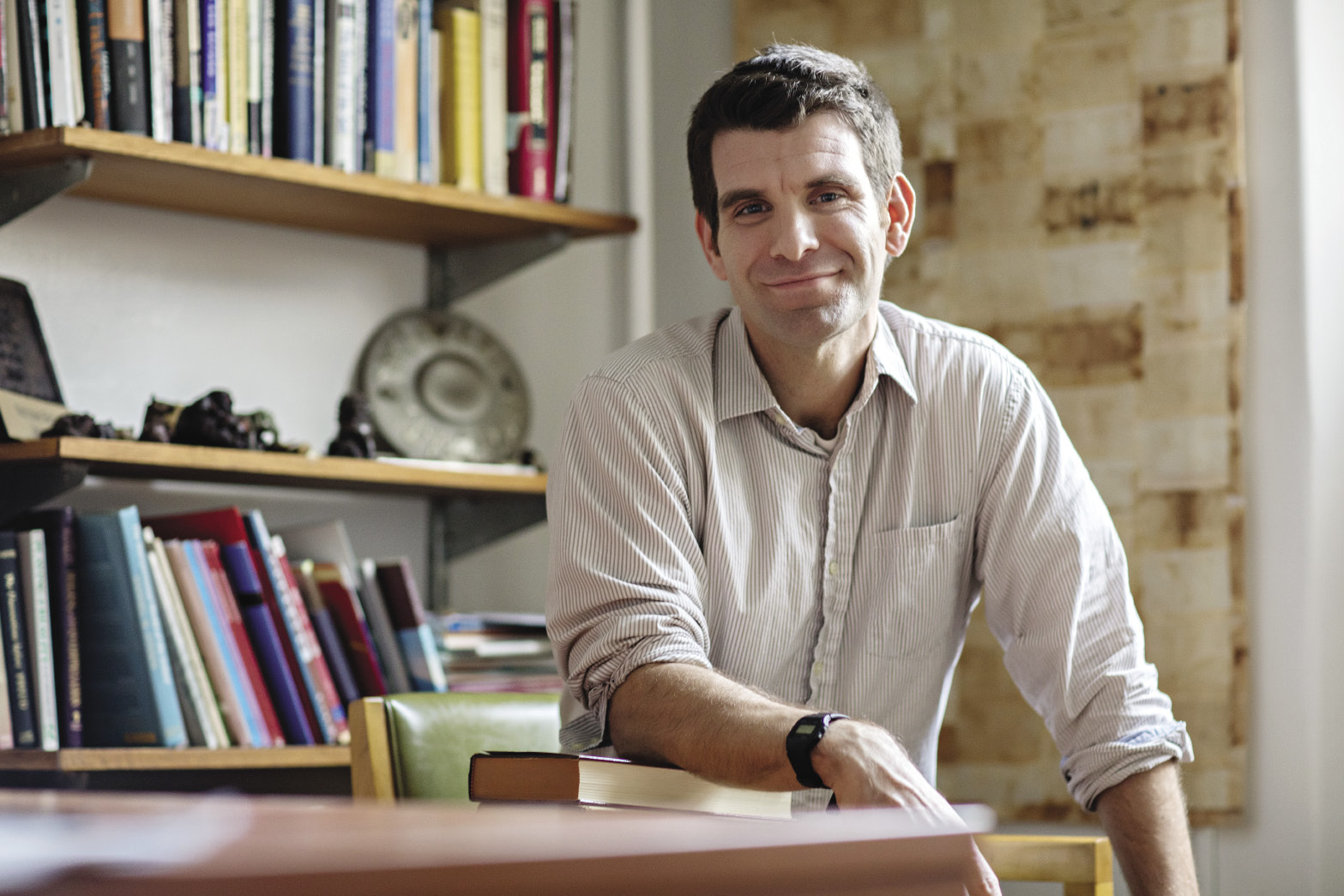Hoping for a path to cure hereditary deafness

Consider the ear. We may think of the organ as just one of two fleshy protrusions on either side of the head, but inside the ear canal there is an incredibly delicate mechanism, consisting of clusters of tiny hair fibers that respond to sound waves to create the sensation of hearing. “They are amazingly beautiful structures,” says Christina Vizcarra, who arrived at Barnard last July as an assistant professor in the chemistry department. “A hundred or so protein fibers are packed together in an almost crystalline formation to make up a single hair.”
When these structures work, they convey the subtle variations between, say, a bird chirp and Beethoven’s Fifth. But when a mutation changes how the underlying proteins are assembled, it can disrupt the delicate balance, leading to hereditary deafness. Vizcarra has been studying the reasons for this failure, plumbing a love for analyzing chemical processes that began as an undergrad at the University of Kansas.
Today, she works with students in her lab to examine how mutations affecting a protein called actin might cause deafness. Last year, she advised Tayyaba Jabeen ’16, who set up a lab to look at how that protein function is impaired. That work is being continued this year by Christina Costeas ’18.
“I think the students are challenged in a good way by the open-ended nature of their projects,” she says. “In many lab courses, the boundaries of the assigned experiment are clear, and the experimental strategy, procedure, and sometimes the expected result are written out for the student. In independent research, students are involved in posing research questions, developing strategies, and analyzing data for themselves.”
Actin is one of the most abundant proteins inside our cells. That ubiquity makes it difficult to target with drug therapies. As an NIH post-doctoral researcher at UCLA, Vizcarra worked with fruit flies to study a second protein, which seems to affect how actin is assembled. She and her colleagues showed how mutations in the other protein caused actin molecules to fail to bind together, leading to impaired development.
In her new lab, Vizcarra is applying this research to the filaments in the ear that transmit sound and are composed almost entirely of actin. She hopes her research may eventually help explain the underlying effects of the mutations that lead to deafness.
Examining the fallout from heroin addiction in China

Nicholas Bartlett first traveled to China on a table-tennis fellowship: He was studying the mental health of young people who had spent their lives trying to turn pro in the highly competitive and increasingly privatized sport, examining what it meant for players to shift from playing for their country to playing for their own personal gain. Living in China for a year from 2000-2001, he fell under the spell of a country facing dramatic change as it moved from communism to a partial market economy. “The sense of being in a place at a historical moment really hooked me,” says Bartlett, who arrived at Barnard this past fall as an assistant professor in Chinese culture and society.
Bartlett went back to China a year later to study the HIV/AIDS crisis. He encountered a population that suffered from heroin addiction and was particularly at risk for HIV. After more than a decade of studying and working on public health programs, Bartlett is compiling his findings in a book.
Through the lens of a rural mining community, Bartlett argues that the condition of heroin addiction in China has less to do with psychological dependence on the drug than with the pain of societal transformation. “The moment heroin arrived, the city was already in the middle of this tumultuous mining boom,” he says. “They were experiencing the collapse of their parents’ ideals and participating in a private sector that was increasingly chaotic and violent.” At the time of the drug epidemic in the 1980s, many users were entrepreneurs in a newly unregulated market and adjusting to a new Wild West of capitalism. In that context, the allure of heroin became a symbol of wealth and power.
Bartlett, who has a PhD from the University of California, San Francisco, doesn’t completely rule out the therapeutic effect labor camps could have had on addicts, in theory if not in practice. The bigger question, however, is how addicts can be reintegrated into a vastly different society from the one they left.
Bartlett is teaching an innovative new course, “China and the Politics of Desire,” which uses a psychoanalytic framework to examine not only sexual and romantic desire but also aspirations for economic consumption and political power, all signs of a society that is changing rapidly. It’s just one more innovative way that Bartlett is trying to understand the psychology of the country that has fascinated him for almost two decades.
